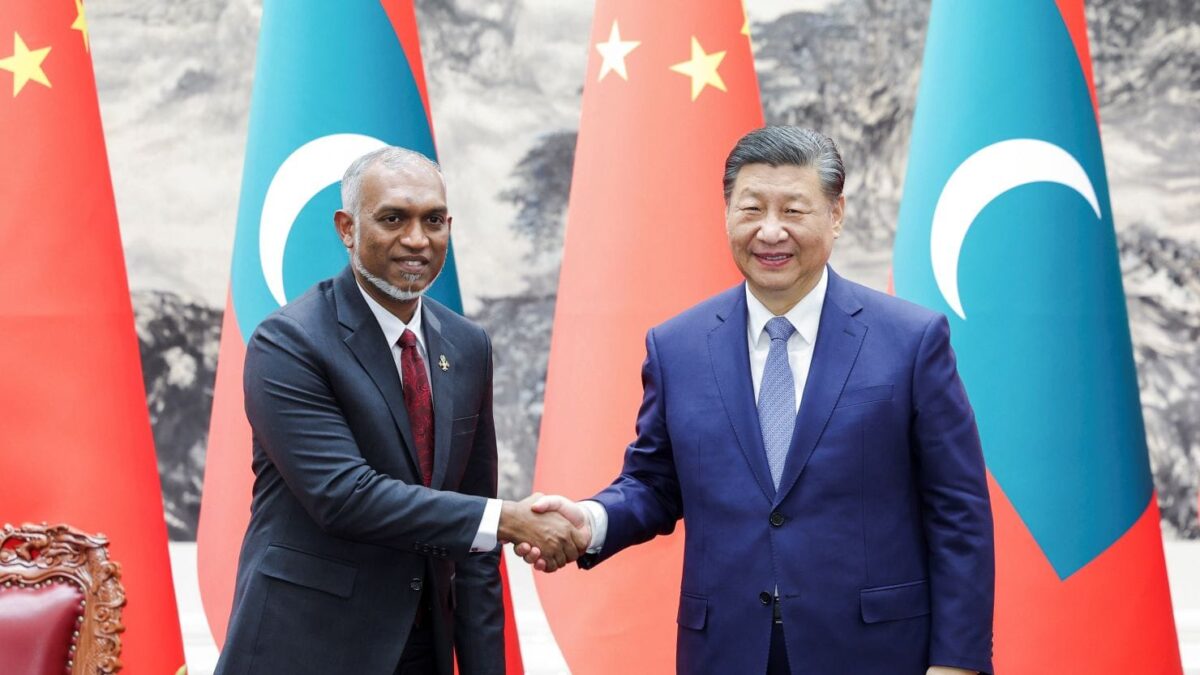Beijing declared that it completely accepted the decision made by the Maldivian people and
intended to further strengthen China’s strategic alliance with the archipelago nation following
the People’s National Congress (PNC), which is now in power and supports Beijing, winning a
resounding majority in parliamentary elections.
In what is perceived as support for his pro-China foreign policy—which deviates from the
previous government’s India First policy—President Mohamed Muizzu’s party won almost 60
seats in parliament, giving them a supermajority.
This time, the Maldivian Democratic Party (MDP), which is led by pro-Indian former president
Ibrahim Mohamed Solih, only managed to win fifteen seats. With the PNC holding a majority
in parliament, Muizzu would have the legal authority to direct the foreign policy of the
strategically located archipelagic state in the Indian Ocean, which is physically near to India’s
southern coast.
China’s Focus on Maldives
In order to benefit our two peoples more, Beijing is prepared to work with the Maldives to
uphold their long-standing friendship, increase mutual understanding and collaboration
across a range of sectors, strengthen their comprehensive strategic cooperative partnership,
and hasten the establishment of a China-Maldives community with a shared future. After
meeting with President Xi Jinping here in January, Muizzu—who had defeated the pro-Indian
incumbent Solih—moved closer to Beijing in order to sign what the two nations refer to as a
“Comprehensive strategic cooperative partnership” in addition to 20 agreements to support
Maldives infrastructure.

Image source: amp.cnn.com
China’s investments initiatives
In addition to pledging to send more Chinese tourists to the Maldives, which depends heavily
on tourism, China also announced a USD 130 million donation. Following Muizzu’s January
visit, Beijing is reportedly making more travel requests to the Maldives at his request,
ostensibly in an effort to lessen the reliance of the tourism-dependent nation on Indian
visitors. The two nations then inked a deal wherein Beijing’s military would give the Maldives
full access to “non-lethal” weaponry. In recent months, Beijing has also initiated a number of
medium-sized infrastructure projects in the Maldives.
Muizzu shift in diplomacy with India
Known as the leader who supported Beijing, Muizzu began his presidency by requesting the
evacuation of the 88 Indian military personnel who were in charge of two helicopters that
transported patients from different atolls in the Maldives to clinics and a Dornier maritime
surveillance aircraft that was used to keep an eye on the Indian Ocean. Following
discussions, the two nations decided to use civilians in place of the military personnel to fly a
Dronier aircraft and two helicopters given by India.
India, on the other hand, also raised yearly aid to the Maldives and lifted export limits to
allow a consistent supply of necessities like food, vegetables, and building supplies. Then,
Muizzu softened his criticism of India, declaring that it will always be the Maldives’ “closest
ally” and pleading with New Delhi to relieve his nation of its debt from the “hefty” loans that
Male had taken out




1 Comment
Pingback: China's swimming doping allegations raise questions.